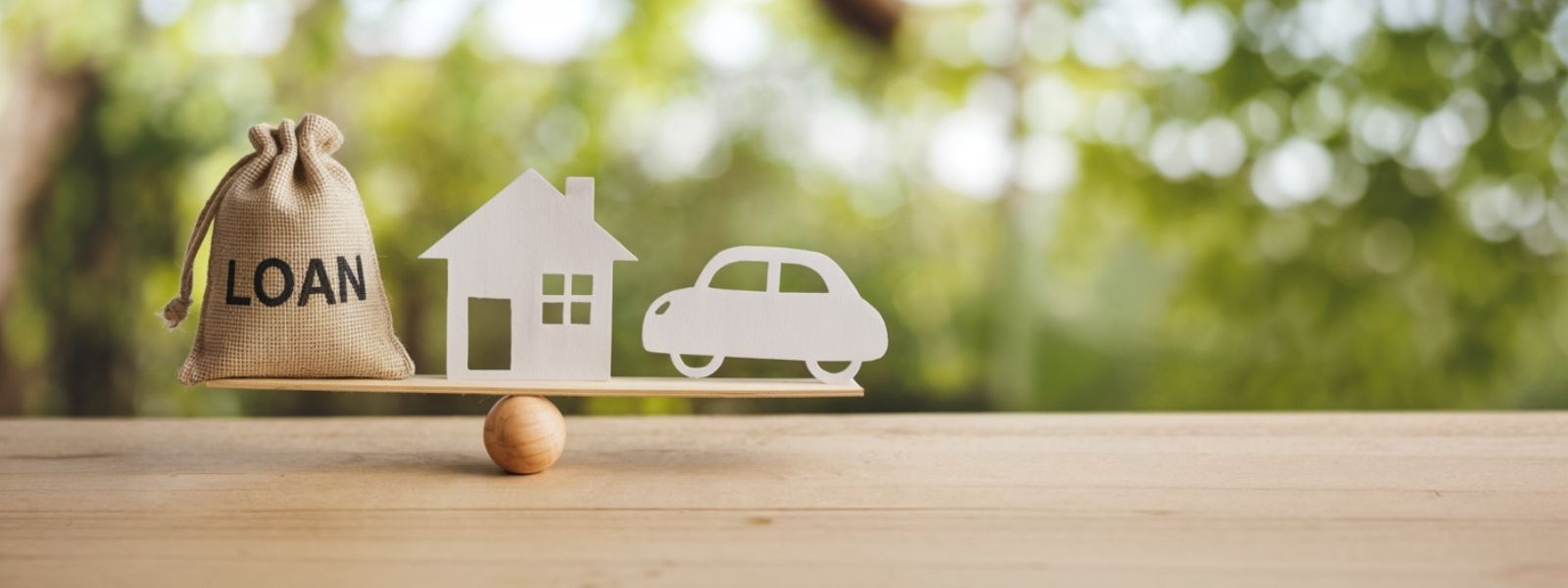
Turn Your Assets into Cash with Secured Loans
Backed by your assets, built for your goals – discover flexible secured loans now.
Arcadia Finance helps you in the search of loans from different banks and lenders. Fill in a free application and get loan offers from up to 16 lenders. We work with well-known, trusted, and NCR-licensed lenders in South Africa.
What are Secured Loans?
Secured loans are financial products that require borrowers to provide collateral, offering security to lenders in the event of default. These loans are commonly used for significant purchases or when credit scores are insufficient for unsecured borrowing. By providing collateral, borrowers may benefit from lower interest rates, as it reduces the lender’s risk. However, certain secured loans, such as bad credit personal loans or short-term installment loans, may still carry higher interest rates to reflect the associated lending risks.
About Arcadia Finance
Arcadia Finance simplifies your loan journey with no application fees. Choose from 16 trusted, NCR-regulated lenders for a hassle-free solution tailored to your needs.
Secured Vs. Unsecured Loans
When discussing loans—whether for personal use or business purposes—it’s important to understand the distinction between secured and unsecured loans. Unsecured loans do not require collateral. Instead, the lender assesses the borrower’s creditworthiness, taking into account factors like their credit score and financial history to determine eligibility and loan terms.
In contrast, secured loans require collateral. This means an asset, often the one being financed, is pledged as security for the loan. For example, when taking out a mortgage to purchase property, the property itself serves as collateral. Similarly, with vehicle financing, the car being bought typically acts as the pledged asset.
If the borrower is unable to meet repayment obligations—referred to as loan default—the lender has the right to claim the collateral. For instance, if a mortgage loan is not repaid, the lender may initiate foreclosure, leading to the sale of the property. The proceeds from this sale would be used to settle the outstanding debt on the defaulted mortgage.

Types of Secured Loans
Secured loans serve various purposes depending on individual needs. Common types of secured loans include:
- Vehicle loans
- Mortgage loans
- Share-secured or savings-secured loans
- Secured credit cards
- Secured lines of credit
- Car title loans
- Pawnshop loans
- Life insurance loans
- Bad credit loans
Vehicle loans and mortgage loans are backed by the assets being purchased, such as a car or property. In contrast, share-secured or savings-secured loans use funds in a savings account or certificate of deposit (CD) account as collateral. This type of loan is particularly useful for individuals looking to improve their credit profile when they do not qualify for unsecured loans or credit cards.
Secured credit cards and secured lines of credit differ in that the collateral may not be a tangible item. Instead, a lender or credit card issuer may require a cash deposit as security. For example, opening a secured credit card may involve a deposit of several hundred rands, which is then used to set your credit limit.
When considering any type of personal loan, it’s advisable to use a personal loan calculator beforehand. This tool can help you determine the most suitable monthly payment, repayment term, and interest rate for your financial situation.
Business Loans
Secured business loans are available alongside unsecured options for businesses. For example, an equipment loan is a secured type of business financing. If you operate a construction company and need to purchase a dump truck, you could take out an equipment loan, with the dump truck serving as collateral for the loan. By making timely payments, you avoid the risk of losing the equipment tied to the loan.
When obtaining a secured business loan, it is common for lenders to require a personal guarantee. This agreement holds you personally responsible for repaying the loan if your business cannot meet its obligations. For instance, if cash flow problems arise and your business defaults, the lender could take legal action against you personally.
Car Title Loans and Pawnshop Loans
Car title loans and pawnshop loans are additional examples of secured loans. A car title loan uses your vehicle’s title as collateral to obtain a loan. In contrast, pawnshop loans accept personal items such as jewellery, electronics, or tools as security, depending on what you are willing to pledge. These loans are generally short-term and designed for borrowing smaller amounts.
Life Insurance Loans
A life insurance loan allows you to borrow against the cash value of a permanent life insurance policy, such as whole life or variable life insurance. This type of loan uses the policy’s cash value as collateral. You can repay the loan during your lifetime, or the loan amount can be deducted from the death benefit paid to your beneficiaries after your passing.
Bad Credit Loans
Bad credit loans are another form of secured financing designed for individuals with poor credit histories. These loans often require collateral, such as a cash deposit, similar to secured credit cards or share-secured loans. Borrowers should note that a lower credit score may lead to higher interest rates or fees when applying for this type of loan.
When Should You Consider a Secured Loan?
A secured loan can be a suitable option in various financial scenarios where the benefits outweigh the risks. Here are some common examples:
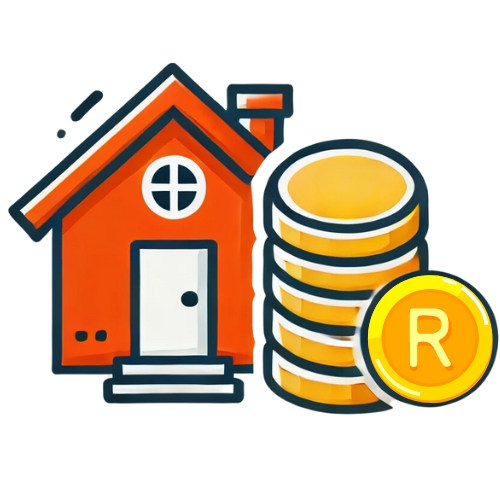
Purchasing Property
When buying a home, secured loans, such as mortgages, are the standard choice. The property being purchased acts as collateral, allowing for higher borrowing amounts and lower interest rates over extended repayment periods.
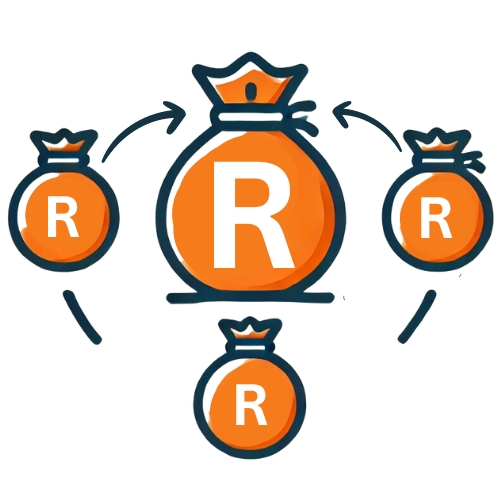
Consolidating Debt
Borrowers with high-interest debt from multiple sources may use a secured loan to consolidate their obligations into a single loan with a lower interest rate. This approach can simplify repayments and reduce overall interest costs.

Funding Business Equipment
Secured loans are often ideal for businesses looking to purchase essential equipment. The equipment itself serves as collateral, reducing the risk for lenders and enabling businesses to secure the necessary financing.
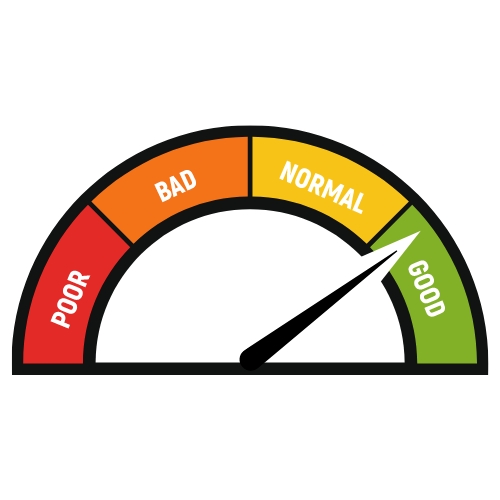
Building or Rebuilding Credit
For individuals with a limited or poor credit history, secured loans—such as savings-secured loans or secured credit cards—offer an opportunity to demonstrate financial responsibility and improve credit scores over time.
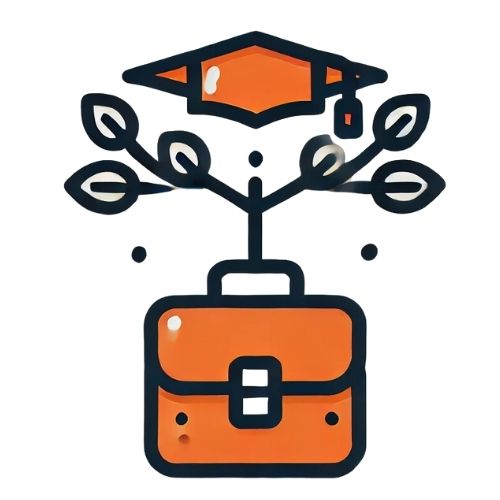
Financing Large Purchases
For major expenses such as vehicles, home renovations, or higher education, secured loans provide access to the required funds while offering more favourable terms than unsecured options.
Where to Find Secured Loans
Secured loans are commonly available through banks, credit unions, and a variety of online lenders. When evaluating your options, it is essential to assess several key factors to ensure the loan aligns with your financial needs. Consider the following aspects:
- Collateral Requirements: Understand the type of asset you will need to provide as security for the loan. This could range from property to vehicles or other valuables. Ensure the collateral is something you are comfortable with risking in case of default.
- Interest Rate and Annual Percentage Rate (APR): Examine the rates offered by different lenders, as they significantly impact the total cost of borrowing. Always compare interest rates across lenders to find competitive options that suit your budget.
- Fixed vs. Variable Interest Rates: Determine whether the loan features a fixed rate, which remains constant for the duration of the loan, or a variable rate, which may fluctuate over time. Fixed rates offer stability, while variable rates could be beneficial if you expect interest rates to fall.
- Lender Fees: Check for any additional charges, including origination fees, prepayment penalties, or administrative costs that could increase the overall expense of the loan. It’s essential to understand all associated fees before committing.
- Loan Amount Ranges: Review the minimum and maximum loan amounts available to ensure they meet your borrowing needs. This is especially important if you require a specific loan size for a significant purchase or investment.
- Credit and Income Criteria: Verify the lender’s credit score and income requirements to confirm your eligibility before applying. Meeting the criteria can help speed up the approval process and prevent unnecessary rejections.
Comparing interest rates and repayment terms from various lenders provides a clearer understanding of the potential costs of secured loans. Another helpful tool is an online secured loan calculator, which can assist in estimating your monthly instalments and the total interest you would pay over the loan term.
For secured business loans, it’s vital to thoroughly review whether a personal guarantee is required. This is a common condition for both secured and unsecured business loans, but knowing this upfront can help you prepare for any unexpected obligations. When considering a secured credit card, it’s also advisable to ask the provider if there is an option to convert the account into an unsecured card in the future and have your security deposit returned.
Pros and Cons of Secured Loans
Secured loans can be a valuable option for achieving significant financial goals, offering access to larger sums at lower interest rates. However, as with any financial product, they come with a level of risk. It is crucial to evaluate both the advantages and disadvantages thoroughly before applying for a secured loan.
Pros
- Easier Approval Criteria: Secured loans are backed by collateral, which reduces the risk for lenders. This makes it easier to qualify compared to unsecured loans, even if your credit score or credit history is less than ideal. Lenders are more likely to approve secured loans due to the asset acting as security.
- Lower Interest Rates: These loans typically come with reduced interest rates, as lenders face less risk when the loan is secured by an asset. However, your credit score and other financial factors will still influence the rate offered, so it’s important to maintain a good credit profile.
- Higher Loan Amounts: Secured loans often allow borrowers to access substantially larger sums than unsecured loans. For example, mortgage loans can be for hundreds of thousands of rands, as the loan is guaranteed by the property’s value, enabling larger borrowing amounts at more favorable terms.
Cons
- Increased Risk for Borrowers: Secured loans pose a significant risk to borrowers compared to lenders. If you fail to keep up with repayments and the loan goes into default, the lender has the legal right to claim the asset you provided as collateral, which could be a high-value item like a home or vehicle. This can result in a substantial financial loss, especially if you are unable to recover the asset.
- Possible Negative Impact on Credit Scores: Like all credit products, secured loans can negatively impact your credit score if repayments are not made as agreed. Falling behind on payments can lead to missed or late payment reports being sent to credit bureaus, which will reduce your credit score. It is essential to make timely repayments and to review your credit reports regularly to address any adverse changes.
Conclusion
Secured loans provide a practical solution for borrowers needing significant funds or with limited credit history, thanks to their reliance on collateral to reduce lender risk. They offer benefits such as lower interest rates, easier qualification criteria, and higher borrowing limits. However, the potential risks, including asset loss and negative impacts on credit scores, necessitate careful planning and responsible financial management. By thoroughly understanding the loan terms, exploring lender options, and evaluating personal repayment capacity, borrowers can make informed decisions that align with their financial goals.
Frequently Asked Questions
A secured loan requires collateral—such as property, vehicles, or savings—whereas an unsecured loan does not. Lenders rely on collateral to reduce their risk in secured loans, making them easier to qualify for, often with lower interest rates.
Collateral can vary depending on the loan type. Common examples include homes for mortgages, vehicles for car loans, cash deposits for secured credit cards, or personal valuables for pawnshop loans.
Yes, making consistent, on-time repayments on a secured loan can help build your credit history and improve your credit score over time. However, missed payments can harm your credit.
If you default on a secured loan, the lender has the legal right to claim the collateral you provided, such as repossessing your car or foreclosing on your property.
Secured loans can be a good option for individuals with poor credit, as collateral reduces the lender’s risk. However, these loans may come with higher interest rates, and the borrower must ensure they can meet repayment terms to avoid losing the collateral.




